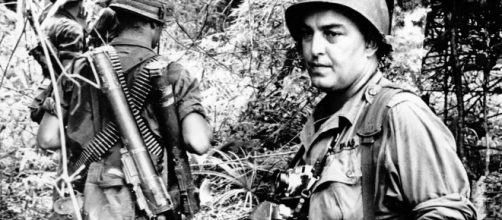Anne Morrissy Merick had a career that spanned more than 40 years as a pioneering journalist. She was the first women permitted to cover the Vietnam War and the first female television news producer.
On May 2 at age 83 in Maples, Florida Merrick passed away from complications relating to dementia. She will be remembered by female journalists around the world for persuading the Pentagon to allow women the right to cover combat areas during the Vietnam War.
Merick's dedication to journalism
While the Vietnam War was a disaster, Merick's dedication and use of long-term journalistic resources she used covering the harsh realities associated with that war will be remembered by her fellow female correspondents as a huge triumph.
In an ironic twist that war turned out to be the greatest event for 467 female journalists – out of which 267 were Americans.
Her college years
Merick was a student at Cornell University in the 1950's and studies sports journalism and later went on to become the first women sports editor despite struggling with sexism. She was also the first woman given the right to sit in the press box at some of the most prestigious universities.
War Torn: Stories of War From the Women Reporters Who Covered Vietnam, written by Merick, where she writes that she went after the Vietnam assignment to surprise the male journalists.
Most significant story of the century
In 2000 she appeared on a panel where she told the audience that she wanted to cover, what she considered, the most significant story of the century.
Merick then went on to explained that women didn't get many assignments back then, so if you wanted to get ahead, you covered a story like Vietnam.
Seven years before she was sent to Vietnam, Merick was working for ABC and covering issues like the Kennedy years, civil rights, and the beginning of the space program. But that didn't make it any easier for her to convince her bosses that she needed and wanted to report on what was happening in Vietnam.
She lobbied the Pentagon
It took a lot of work before Merick would get to go to war. She and her colleagues lobbied the Pentagon and Secretary of Defense Robert McNamara and finally won. The ban was lifted and female journalists were allowed to report freely.
While there, Merick decided to focus her work on the non-combatants.
She felt those were the stories her readers deserved to see. She wanted to give the people back home a better understanding of the conflict. Merick later went on the say that she felt she was doing an important job, covering stories the guys didn't want to cover – the soft stories.
R.I.P. Anne Morrissy Merick and we thank you for all your hard work and determination.


